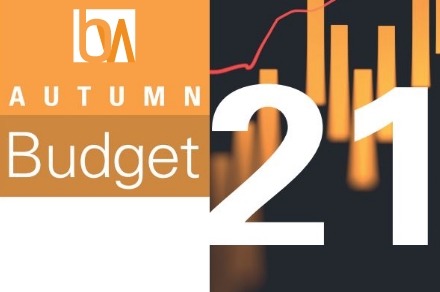The Chancellor has finished delivering his Autumn Budget 2021. Mr Sunak was keen to point out that employment is increasing, investment in public services is growing, public services are improving, the public finances are stabilising and wages are rising. He confirmed “historically high levels of public spending” and commentators are wondering how it will be funded. Many had expected cuts to departmental spending, but Mr Sunak confirmed a £150bn increase in total departmental spending over the period of this Parliament.
In fairness, the measures announced in the Spring Budget, including freezing personal allowances, are likely to swell the Treasury’s coffers. We are taking a close look at the accompanying documents, but for now, the headlines for businesses are:
- The Annual Investment Allowance extension: which extends the temporary £1,000,000 level of Annual Investment Allowance until 31 March 2023
- Business Rates:
- Revaluations every 3 years, delivered from 2023
- New investment relief to encourage adoption of green technologies
- Business Rates Improvement relief, allowing businesses to make property improvements, and for 12 months, pay no extra business rates
- Next year’s planned increase in multiplier cancelled
- New one year 50% business rates discount for businesses in the retail, hospitality, and leisure sectors, up to a maximum of £110,000
- Residential Property Developers Tax: levied at 4% on developers with profits over £25m to part fund removal of unsafe cladding
- British Business Bank: regional financing programme increased to £1.6bn
- R & D tax reliefs: expanded to include cloud computing and data costs
The Budget documents also confirm that the income tax basis period system for unincorporated businesses will be moving from the current year basis to a tax year basis, from 6 April 2024. This measure will only affect self-employed traders, partnerships and other unincorporated entities which draw up annual accounts to a date different to 31 March or 5 April.
We had been braced for changes to Capital Gains Tax, but there was no mention of it in Mr Sunak’s speech. His ambition is to reduce taxes by the end of this Parliament, and to create a society that rewards “energy, ingenuity and inventiveness”. That sounds like good news for small businesses and entrepreneurs, but we will be checking the detailed announcements over the coming days to keep you informed of any “hidden surprises”.
Richard Coombs, Tax Partner at Bates Weston gives us his thoughts:
“If we didn’t know better this speech had all of the hallmarks of a pre-election Budget, with billions of pounds of giveaways, some feel good wins which cost the Exchequer nothing but look good as a soundbite and no obvious sting in the tail. However, we are in strange times and it feels more like Mr Sunak has decided that the best way out is to spend our way out and hope that the return is big enough to repay the huge debt we are in.
There will be some relief amongst business owners that the recently touted rumours of a hike in CGT has not materialised although of course that may well still come further down the line.
Overall a fairly uneventful Budget from a tax perspective which is never a bad thing!”

